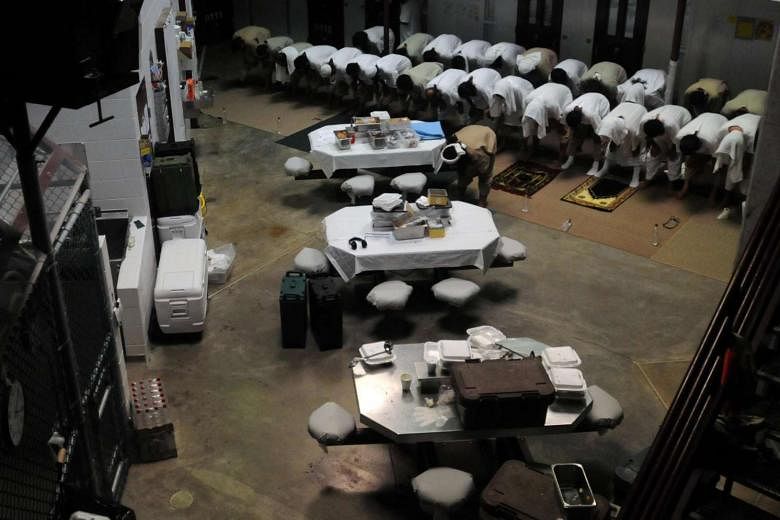GENEVA (AFP, OHCHR) - The United Nations High Commissioner for Human Rights Zeid Ra'ad Al Hussein has welcomed US President Barack Obama's move on Tuesday (Feb 23) to close down the detention centre at a US naval base in Guantanamo Bay in Cuba.
It was a campaign promise the president had made and which he hopes to fulfil before leaving office next year at the end of his second term. Mr Obama had said that the Guantanamo detention centre harms America's image and its national security.
The facility had been set up by his predecessor George W Bush following the September 2001 terrorist attacks on the US to incarcerate suspected terrorists.
The president has been trying for the past few years to close down the detention centre, but has been thwarted by Congress, the Pentagon, some in his own party and foreign allies who refuse to host the terror suspects abroad.
"It undermines our standing in the world," said President Obama. "This is about closing a chapter in our history."
He outlined a US$290-US$475 million (S$408-S$668 million) plan to move the 91 remaining detainees abroad and to one of 13 possible - unnamed - facilities in the United States.
High Commissioner Zeid said in a statement on Tuesday: "I very much welcome this plan, and hope no further obstacles are placed in the way of its implementation.
"The Guantanamo regime, with all that it entailed, has been a serious blot on the human rights record, and reputation, of the United States for the past 14 years, and has been cited by many repressive governments as justification for their own actions. It is vital that the implementation of the plan results in no one remaining in indefinite detention without charge or trial."
Mr Zeid added that all Guantanamo detainees should either be transferred to regular detention centres in the US mainland or other countries where fair trials before civilian courts and due process guarantees can be provided in accordance with international norms and standards.
If there is insufficient evidence to charge them with any crime, they must be released to their home country, or to a third country if they risk persecution at home, he said.
President Obama has long argued that many Guantanamo prisoners should be transferred overseas and some should be tried by military courts. A small number - those deemed too dangerous to release but too difficult to prosecute - would be held in the United States.
But lawmakers in the Republican-controlled Congress have blocked the most obvious path to closing the facility by banning the transfer of detainees to the United States, and there is little prospect of Republicans changing tack in the run-up to the November presidential election.
Mr Obama has also faced opposition from within his own administration, with the Pentagon accused of slow-pedaling transfers and overstating closure costs. The president could still try to force the closure through an executive order, but such a move would expose him to accusations of ruling by decree.

